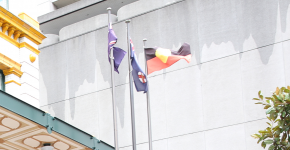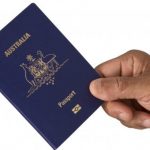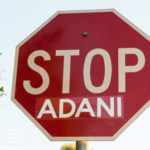The Evolving Legal Status of Aboriginals in Australia

High Court Justices Deane and Gaudron famously acknowledged how the law allowed extreme prejudice suffered by Indigenous Australians in Mabo v Queensland:
“The official endorsement, by administrative practice and in judgment of the courts, of those two propositions [of terra nulls and land ownership by the Crown] provided the environment in which the Aboriginal people of this continent came to be treated as a different and lower form of life whose very existence could be ignored for the purpose of determining the legal right to occupy and use their traditional homelands.”
Historial context
Following colonisation in 1788, the British Colonial Office treated Australia as a settled colony and applied the English law. Our courts have always rejected arguments that Aboriginal people are not subject to the laws Australia inherited from England.
In an 1836 case, R v Murrell, the Full Court of the New South Wales Supreme Court unanimously held that it had jurisdiction to try an Aboriginal man for the murder of another.
In his defence, Jack Congo Murrell argued that the victim was a member of a group that killed his brother, so it was a revenge killing under Aboriginal customary law. His criminal defence lawyer argued the double standard of applying English law to Aborigines, in that it offered them no rights, only obligations:
“This country was not originally desert, or peopled from the mother country, having had a population far more numerous than those that have since arrived from the mother country. Neither can it be called a conquered country as Great Britain was never at war with the natives, not a ceded country either, it, in fact, comes within neither of these, but was a country having a population which had manners and customs of their own, and we have come to reside among them: therefore in point of strictness and analogy ‘to our law, we are bound to obey their laws, not they to obey ours.
The reason why subjects of Great Britain are bound by the laws of their own country is, that they are protected by them; the natives are not protected by those laws, they are not admitted as witnesses in Courts of Justice, they cannot claim any civil rights, they cannot obtain recovery of, or compensation for, those lands which have been torn from them, and which they have probably held for centuries. They are not therefore bound by laws which afford them no protection.”
Despite the coexistence of two laws for Aboriginal people, the case was regarded as having settled the Australian law—we were all bound by it, regardless of Aboriginality.
Legal definition of Aboriginal
However, the Australian Government found it important to have a legal definition of the word “Aboriginal” for administrative purpose. From 1788 to 1984, over 700 laws were enacted which expressly or incidentally affected the rights of Aboriginal people, usually in a restrictive way.
In all Australian jurisdictions, early statutory definitions discussed the inheritance of Aboriginal blood, using terms like “full-blood”, half-caste” and “quadroon”, which were later recognised as offensive and unhelpful.
There were also ‘scientific tests’ devised to determine Aboriginality, which are now described in the Aboriginal Benchbook for Western Australia Courts as demonstrating “more about the psychology of racism than they do scientific matters.”
Colonisation also made it difficult for Aboriginal people to understand their own identity. Aboriginal writer and activist, Mudrooroo, described this in his book, Us Mob:
“We are many mobs with many countries, but we have become mixed up. We were put together without thought for our differences and our attachment to our countries. We were taken here and there, sometimes we went voluntarily, other times we were like cattle rounded up, slaughtered and bought and sold. We were made into what are called ‘Australian Aborigines’, or now ‘Aboriginal Australians’, though we were never a single mob.”
Even once modern Australians began to understand the consequences racism and settlement had for Aboriginal people, Australian courts continued to struggle with defining what it means to be an Aboriginal, as more recent Australian laws attempted to offer special recognition and protection to Aboriginal people and their lands.
In Commonwealth v Tasmania, a 1983 case, the High Court declared that Aboriginal persons from Tasmania are members of the “Aboriginal race” for the purposes of section 51(xxvi) of the Australian Constitution. Justice Deane said the word ‘Aboriginal’ should have “a wide and non-technical meaning”. His Honour continued:
“By ‘Australian Aboriginal’ I mean in accordance with what I understand to be the conventional meaning of the term, a person of Aboriginal descent, albeit mixed, who identifies himself as such and who is recognised by the Aboriginal community as an Aborigine.”
The High Court’s definition contains three criteria which have been adopted by Australian Government departments since: Aboriginal descent, self-identification as Aboriginal, and recognition by the community as being Aboriginal.
Moving forward
New laws seek to initiate social justice for Aboriginal and Torres Strait Islander people and build understanding between Aboriginal and non-Aboriginal Australians. However, the disparity in health, prison rates and deaths in custody, housing, and employment problems show there is still a long way to go in creating true understanding.
Aboriginal elder Wadjularbinna Nullyarimma, argues, “There can be no reconciliation without justice. When all of these issues are dealt with, reconciliation will happen automatically and they will not have to build monuments to prove reconciliation.”
One hopes that the extreme socio-economic disparity between Aboriginals and other Australians will be addressed through a concerted effort to rectify the continuing effects of past injustices.





